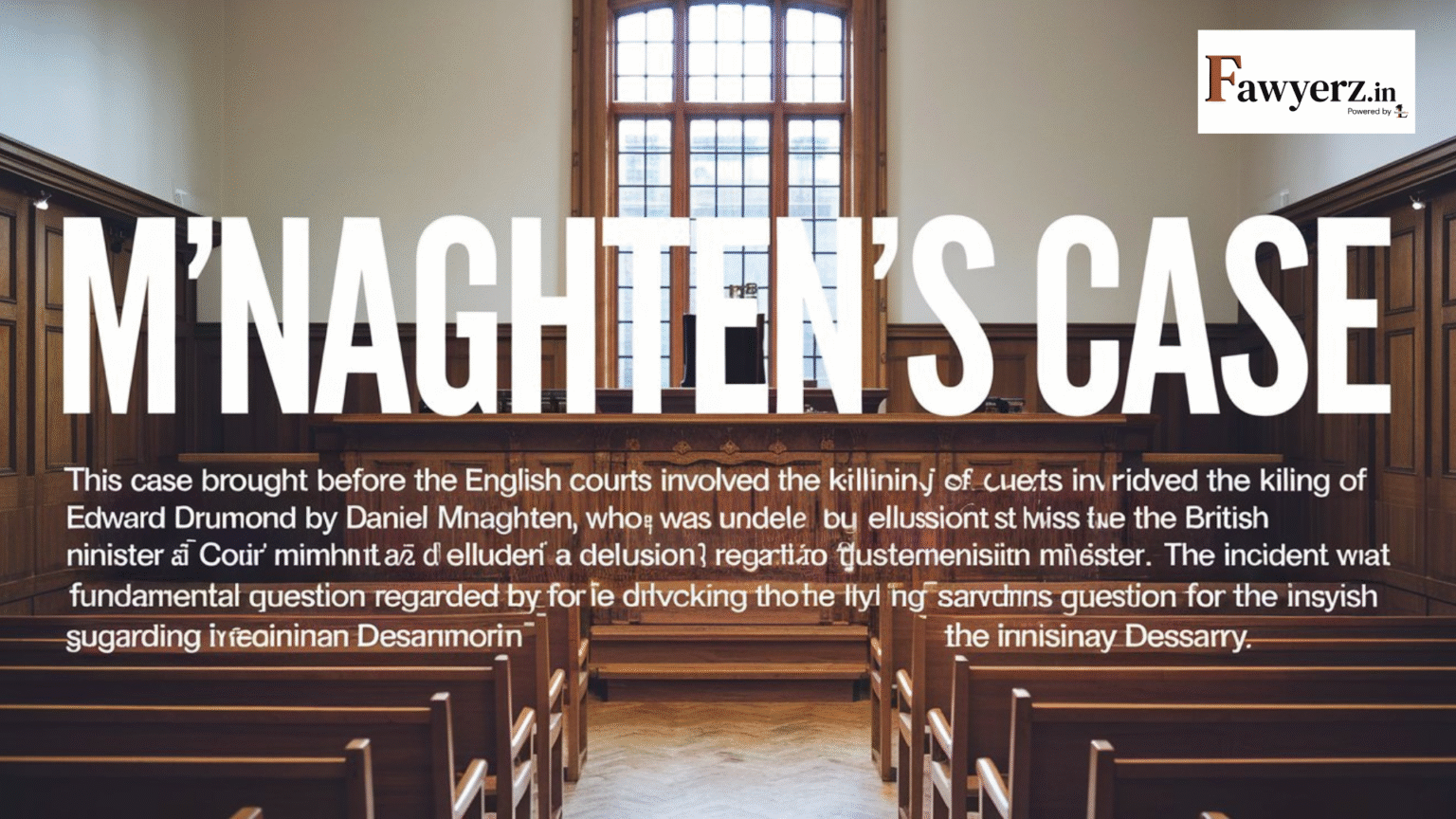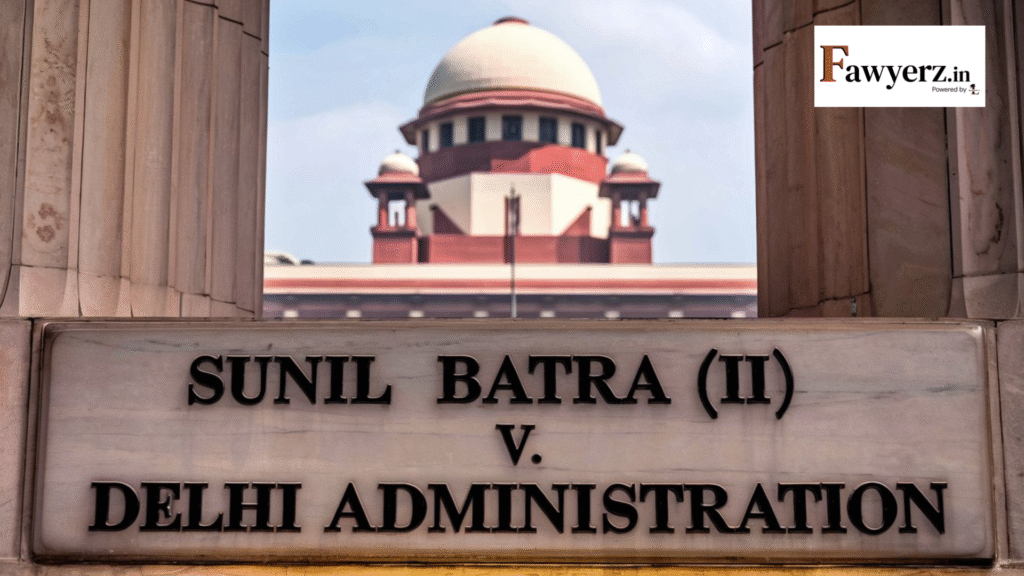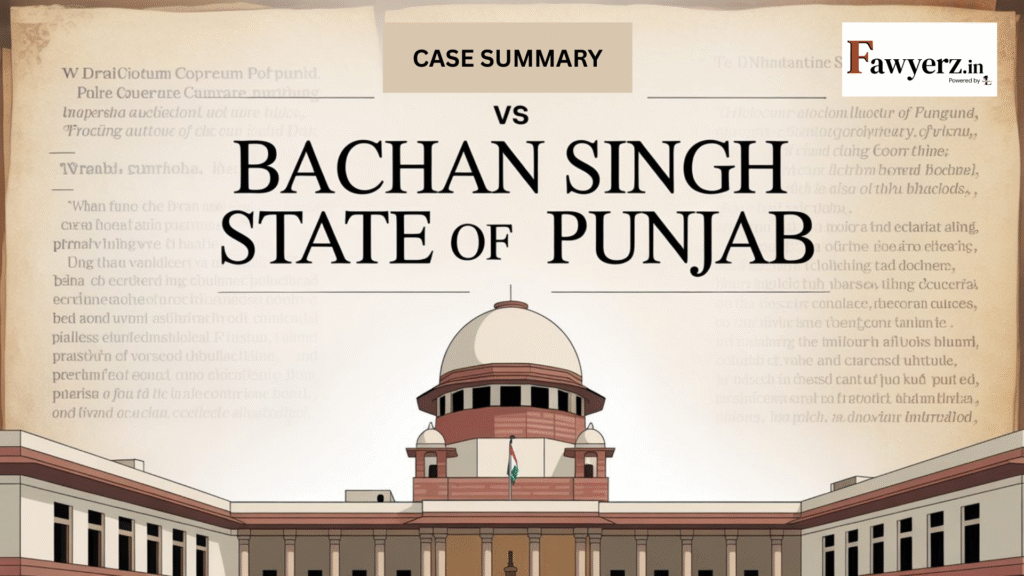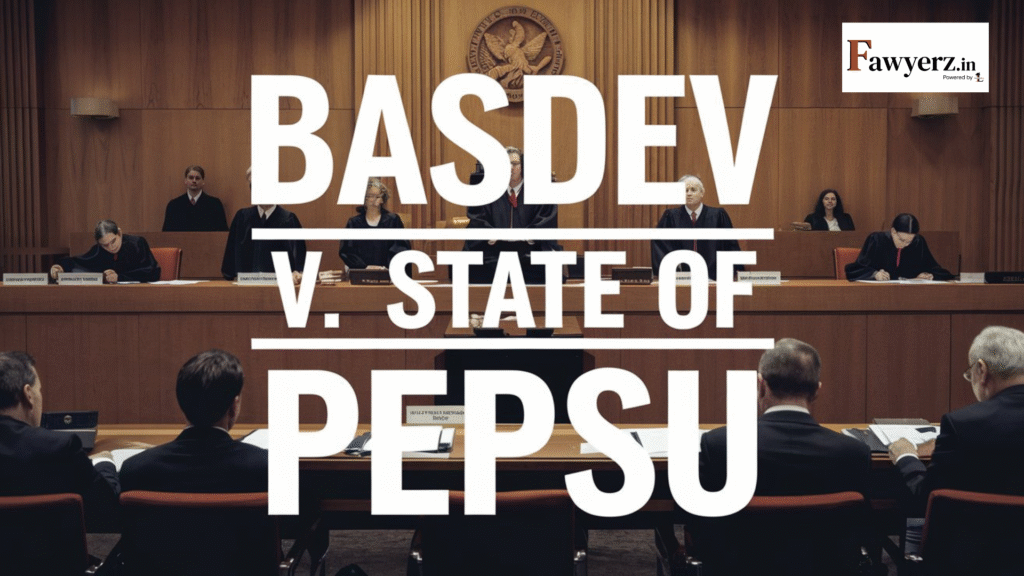M'Naghten's Case 1843 (Case Summary)

This case brought before the English courts involved the killing of Edward Drummond by Daniel M’Naghten, who was under a delusion that Drummond was the British Prime Minister. The incident raised a fundamental question regarding criminal responsibility in cases involving mental illness and laid the groundwork for defining the legal standards governing the insanity defense.
Table of Contents
ToggleFacts of M’Naghten’s Case
- In January 1843, Daniel M’Naghten, under the delusion that he was being persecuted by the government, shot and killed Edward Drummond, the private secretary to Prime Minister Sir Robert Peel.
- M’Naghten believed Drummond was Peel and that the government was conspiring against him.
- He was charged with murder and pleaded not guilty by reason of insanity.
Issues framed
- What constitutes legal insanity sufficient to absolve a defendant of criminal responsibility?
- Under what circumstances can a defendant be considered not guilty due to insanity?
Subordinate Court Judgment
The trial court found M’Naghten not guilty by reason of insanity. The verdict led to public outcry and prompted the House of Lords to seek clarification on the law regarding criminal insanity.
Judgment of M’Naghten’s Case
The House of Lords formulated the “M’Naghten Rules,” establishing the legal criteria for the insanity defense.
The Court held that to establish a defense on the ground of insanity, it must be clearly proven that, at the time of the act, the accused was laboring under such a defect of reason from disease of the mind as not to know the nature and quality of the act he was doing; or, if he did know it, that he did not know he was doing what was wrong.
The Court affirmed M’Naghten’s acquittal due to insanity, establishing that a person is not criminally responsible if, at the time of the offense, they were suffering from a mental defect that impaired their ability to understand the nature of their act or that it was wrong.





